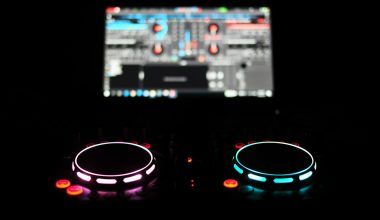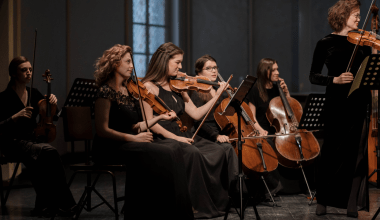DJing, the art of mixing music and captivating audiences, has evolved into one of the most exciting and creative professions in the music industry. From spinning tracks at house parties to commanding massive festival crowds, DJs play a vital role in creating unforgettable experiences. If you’re passionate about music and dream of becoming a DJ, this guide will provide you with everything you need to know to get started and succeed.
The Basics of DJing
What is DJing?
DJing, or Disc Jockeying, involves selecting, mixing, and playing pre-recorded music for an audience. DJs create seamless transitions between tracks, manipulate sounds, and add personal flair to their performances, making each set unique.
Key Skills for DJing
- Beatmatching: Aligning the beats of two tracks to create smooth transitions.
- Track Selection: Choosing the right songs to match the mood and energy of the crowd.
- Timing and Rhythm: Understanding song structures and knowing when to transition.
- Crowd Reading: Gauging the audience’s energy and responding with the right music.
Essential DJ Equipment
To start DJing, you’ll need some essential equipment:
- DJ Controller: Combines turntables, mixer, and effects into one device.
- Turntables: Classic choice for vinyl enthusiasts.
- Mixer: Central hub for blending and transitioning between tracks.
- Headphones: High-quality headphones for accurate sound monitoring.
- Speakers or Monitors: Delivering sound to your audience.
- Laptop/Software: Tools like Serato, Rekordbox, or Traktor for digital mixing.
Types of DJs
Understanding different DJing styles can help you choose your niche:
- Club DJ: Spins tracks at nightclubs and bars.
- Mobile DJ: Plays at weddings, parties, and corporate events.
- Radio DJ: Hosts music shows on radio or online platforms.
- Festival DJ: Performs at large-scale events and music festivals.
- Bedroom DJ: A hobbyist DJ who mixes music for personal enjoyment.
Step-by-Step Guide to Becoming a DJ
Step 1: Define Your DJ Style
Explore genres like house, techno, hip-hop, or drum and bass to identify your musical preferences.
Step 2: Learn the Basics
Start with online tutorials, YouTube videos, or enroll in DJing classes to learn foundational skills.
Step 3: Invest in Equipment
Purchase beginner-friendly gear like an entry-level DJ controller and software.
Step 4: Practice Regularly
Practice mixing, beatmatching, and transitioning between tracks to refine your skills.
Step 5: Build a Music Library
Curate a collection of tracks that align with your style and audience preferences.
Step 6: Perform for an Audience
Start small by performing at house parties or open mic events to gain experience.
Advanced DJing Techniques
- Scratching: Creating rhythmic sounds by manipulating a vinyl record.
- Looping: Repeating a section of a track to build energy or extend a drop.
- Sampling: Incorporating snippets of other tracks or sounds into your mix.
- FX Use: Enhancing transitions with effects like reverb, echo, or flanger.
Building Your Brand as a DJ
Create a Unique Identity
Choose a DJ name that reflects your style and stands out in the industry.
Promote Yourself Online
Use social media platforms like Instagram, SoundCloud, and Mixcloud to showcase your work.
Network with Other DJs
Collaborate with peers to learn, share ideas, and expand your audience.
Play at Events
Accept gigs at local clubs or events to build your reputation and experience.
Challenges in DJing and How to Overcome Them
- Crowd Mismanagement: Learn to adapt your set based on audience feedback.
- Technical Issues: Familiarize yourself with your equipment to handle unexpected problems.
- Staying Relevant: Continuously update your music library and experiment with new techniques.
Tips for Aspiring DJs
- Stay consistent and practice daily.
- Listen to mixes from top DJs for inspiration.
- Invest in high-quality gear for better performance.
- Join DJ communities to share knowledge and grow.
Future of DJing
As technology advances, DJing continues to evolve with trends like AI-assisted mixing, virtual DJing, and immersive audio experiences. Staying updated with these developments can give you a competitive edge.
Conclusion
DJing is an exciting journey that combines creativity, technical skills, and a passion for music. Whether you aim to perform at festivals or host intimate gatherings, mastering the art of DJing requires dedication, practice, and a love for the craft. Start your DJing adventure today, and let the music guide you to success.
Related Articles:
For further reading, explore these related articles:
- Master the Art of Performing Live | Ultimate Guide
- Master Music Online Free – Comprehensive Beginner’s Guide
- Master Tracks Online Free: Professional Guide to Get Started
For additional resources on music marketing and distribution, visit Deliver My Tune.






